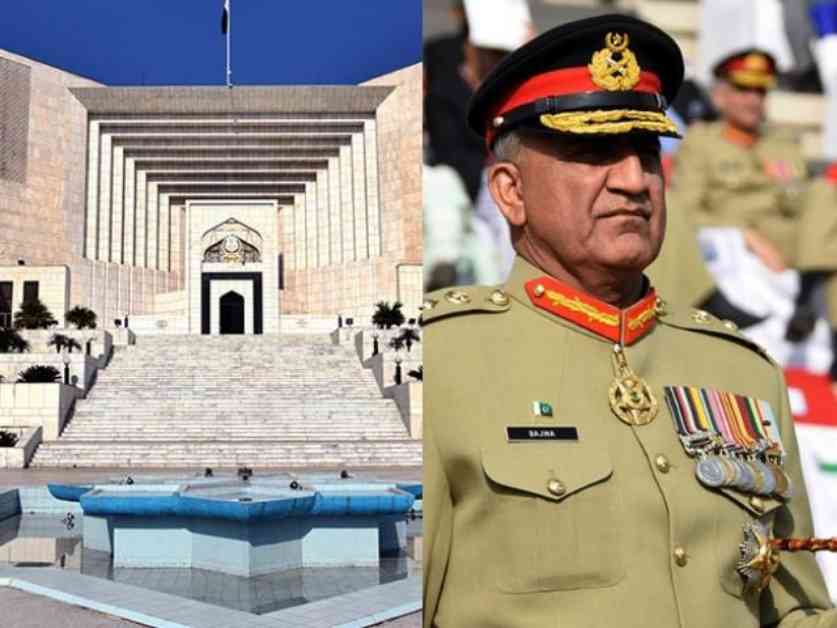The Supreme Court of Pakistan recently delved into a contentious debate over military trials for civilians, citing the controversial extension of former army chief General (Retd.) Qamar Javed Bajwa during a hearing. Led by Justice Aminuddin Khan, a seven-member constitutional bench tackled an intra-court appeal challenging the jurisdiction of military courts over civilians. The mention of Bajwa’s extension, which initially lacked legal backing until formalized by parliamentary legislation following the Supreme Court’s directives, served as a poignant example of legal transformations influenced by judicial interventions.
Expert Insights and Legal Debate
During the proceedings, Justice Naeem Akhtar Afghan highlighted the unique circumstances surrounding Bajwa’s tenure extension, emphasizing the pivotal role of the court in shaping legal outcomes. Justice Aminuddin Khan poignantly reflected on the urgency that characterized the events leading to Bajwa’s extension, underscoring the gravity of the situation at the time. The court’s reference to this case as a precursor to broader legal reforms underscored the far-reaching impact of judicial decisions on the nation’s legal landscape.
Challenges to Military Trials
The legal standing of military trials for civilians came under intense scrutiny during the hearing, with Advocate Uzair Bhandari, representing former Prime Minister Imran Khan, raising pertinent concerns about the fairness of such proceedings. Bhandari’s argument that military courts lack trained judges and restrict the right to appeal to a mercy plea before the army chief underscored the need for robust legal safeguards in military justice systems. Justice Hassan Azhar Rizvi’s counterpoint, drawing attention to security concerns in areas under military control, highlighted the complex interplay between security imperatives and legal protections in such cases.
Comparative Legal Frameworks and International Precedents
The court’s examination of India’s military trial system, juxtaposed against Pakistan’s legal regime, shed light on differing approaches to military justice. Justice Aminuddin Khan’s query about the availability of appeals to independent tribunals in India underscored the importance of legislative versus judicial mandates in safeguarding legal rights. The reference to Kulbhushan Jadhav’s case, wherein Pakistan granted appeal rights post-International Court of Justice ruling, underscored the role of international law in shaping domestic legal reforms.
The Human Element and Legal Advocacy
A moment of human drama unfolded during the proceedings when Justice Musarrat Hilali questioned Advocate Bhandari’s alignment with his client’s stance, highlighting the delicate balance between legal advocacy and client representation. Bhandari’s steadfast focus on the case’s legal intricacies, despite his client’s divergent statements, underscored the professionalism and commitment of legal practitioners in upholding the rule of law.
Looking Ahead: The Road to Legal Reform
As the court adjourned the case for further deliberation, the stage was set for lawyer Faisal Siddiqui to present additional arguments in the next session. The legal saga surrounding military trials for civilians, underscored by the poignant reference to Bajwa’s extension, epitomized the intricate interplay between judicial interventions, legislative reforms, and the quest for justice in a complex legal landscape.
In conclusion, the Supreme Court’s nuanced exploration of military trials for civilians, contextualized through the lens of Bajwa’s extension, underscores the multifaceted nature of legal reforms and the critical role of judicial oversight in shaping legal outcomes. As the legal saga continues to unfold, it remains imperative to uphold fundamental rights and ensure fair legal proceedings for all individuals, underscoring the enduring quest for justice and accountability in a democratic society.









